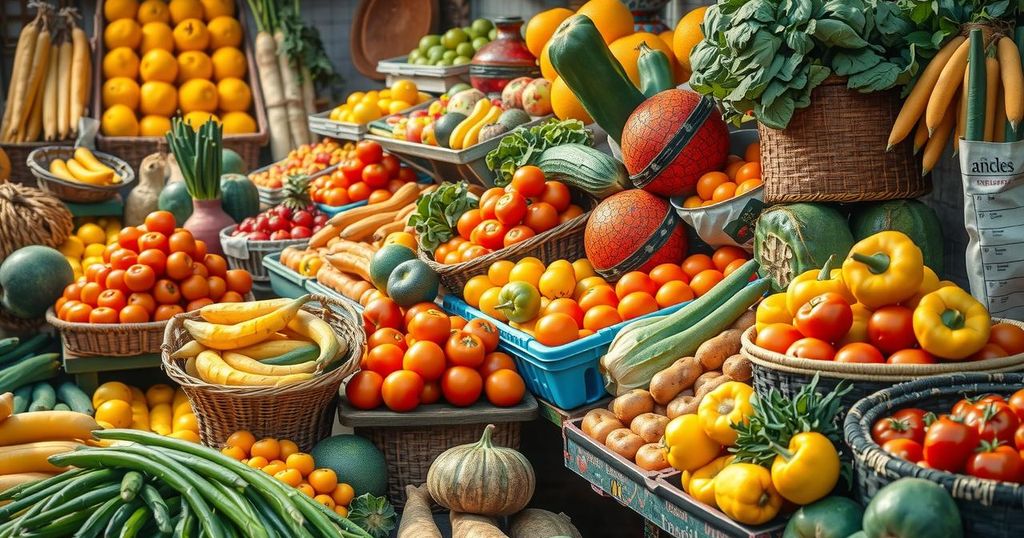Brazil Eliminates Import Taxes on Essential Food Items to Ensure Affordability
Brazil has decided to remove import taxes on essential food items to lower prices and maintain citizens’ purchasing power. The list includes various staples like coffee, olive oil, and meat. Additionally, changes to inspection rules and increases in palm oil quotas are planned to boost production and support local farmers.
The Brazilian government has announced the elimination of import taxes on essential food products as a strategy to reduce prices and enhance citizens’ purchasing power. The list of exempted items encompasses coffee, olive oil, sugar, corn, sunflower oil, sardines, cookies, pasta, and meat. This decision was revealed by Vice President Geraldo Alckmin during a meeting led by President Lula with various ministers, including those from agriculture and finance.
Geraldo Alckmin emphasized that this measure aims to benefit citizens by reducing costs for basic food items, ultimately stimulating production and commerce sectors. He noted that the government is prioritizing regulatory and tax measures to favor price reductions, despite the resultant loss of tax revenue. The tax rates on these food items currently range from 7.2% for corn to 32% for sardines.
Additionally, Brazil’s import quota for palm oil will be raised from 60,000 to 150,000 metric tons, indicating a broader strategy to adjust import regulations. The government is also proposing changes to inspection rules, particularly extending the jurisdiction of Brazil’s Municipal Inspection Service (SIM) to operate at a national level, thereby allowing locally certified products to be sold nationwide.
Minister Carlos Fávaro expressed optimism about the changes, stating that they would create more opportunities for Brazilian farmers, especially regarding products that do not pose health risks while maintaining food quality. Furthermore, the government is planning to enhance domestic production of fundamental food items through investments from the National Supply Company (Conab), focusing on creating “regulatory stocks” to support the basic food basket in Brazil.
In summary, the Brazilian government’s initiatives to remove import taxes on essential food items, extend inspection jurisdiction, and boost local production reflect a comprehensive strategy aimed at ensuring affordability, safety, and availability of food products for its citizens. The coordinated effort among various government bodies illustrates a commitment to address domestic food challenges effectively.
The Brazilian government’s decision to eliminate import taxes on essential food items, coupled with adjustments to inspection regulations and increased support for local production, underscores its strategic approach to enhancing citizens’ access to affordable food. These changes not only aim to reduce prices but also to stimulate domestic agricultural sectors and ensure food safety across the nation.
Original Source: www.just-food.com




Post Comment